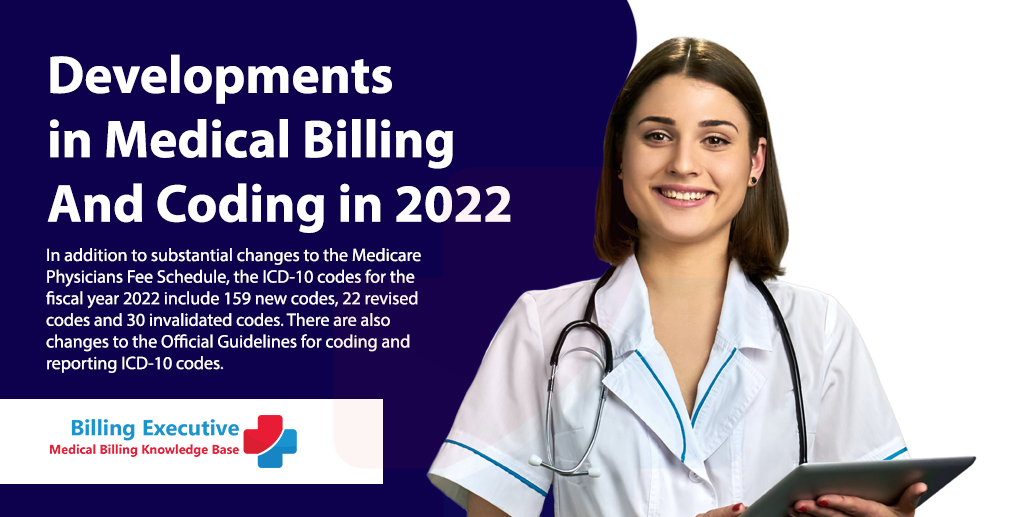The healthcare industry is massive and constantly changing, owing to increasing regulatory guidelines, advanced digital technologies, data interoperability, the shift to value-based payment models, changing consumer expectations and patient demographics, insurance provider policies, and innovative care delivery approaches such as telemedicine. The COVID-19 epidemic has dramatically influenced all elements of the healthcare revenue cycle during the last two years.

Modernization in all sectors of life has taken over daily activities and continues to infiltrate the usual way of living. The advent of technical instruments has resulted in an exponential expansion in the healthcare industry, bringing convenience, comfort, and prosperity to the lives of both patients and medical practitioners. Remote medical billing is one of the most significant technology developments, and it has been in the limelight, especially following the devastating results of the Covid-19 outbreak.
Global Electronic Health Record (EHR) Adoption
Medical professionals widely use electronic Health Record (EHR) systems and are predicted to reach new heights of popularity and use in 2022. According to the National Centre for Health Statistics, 55% of medical professionals already implemented an EHR system in 2011, and the number has been continuously growing since then. The introduction of such revolutionary electronic health record systems will undoubtedly usher in a new medical billing and coding age.
Job Creation
Advancement in the IT industry has resulted in employment in information technology for developing healthcare. As the need for healthcare grows by the day, more and more skilled personnel are needed to handle insurance claims and medical record updates.
The adoption of ICD-10 implies more accurate medical billing and coding, translating to better jobs with more significant compensation as healthcare practitioners worldwide complete the necessary transition. Medical billers must cope with any unanticipated issue, hence IT cannot manage this task alone. According to the US Bureau of Labor Statistics, job prospects for medical transcriptionists are predicted to grow 11% in the next year.
Creation Of New Medical Codes
Significant adjustments were made to medical coding sets to account for the novel coronavirus and related illnesses. New CPT and HCPCS codes are set to account for COVID-19 and track many emerging procedures and services to treat COVID immunization. Similar shifts are predicted to occur till the end of 2022. Coders had to cope with hundreds of ICD-10 codes to record different diseases and annual modifications to the codes and standards. In addition to significant revisions to the Medicare Physician Fee Schedule, the ICD-10 codes have been updated.
Official Guidelines for Coding and Reporting ICD-10 Codes have also been updated. ICD-11 was implemented on January 1, 2022, and has enabled access to around 17000 diagnostic categories. Coding teams are preparing to assist physicians in using this new diagnostic coding system. Integration Of Artificial Intelligence (AI) In Medical Billing.
Artificial intelligence is gradually automating healthcare and is predicted to play an essential role in 2022. AI can significantly improve backend systems and do administrative functions that do not require human intervention, such as submitting claims. Artificial intelligence is changing healthcare with its streamlined billing and insurance regulation procedures. Medical documentation interpretation is predicted to reach new heights because of recent advancements in language models from Google or Open AI.
Electronic health record data is likely to be the fundamental foundation for administrative automation solutions, with AI-driven RPA systems able to augment and drive claim forms using data and information from EHRs.
Cloud-Based Medical Billing Software
This is one of the most essential advancements that has opened path for various sectors throughout the United States. This software, which uses encrypted technology to provide a safe and secure platform for patient data, may be updated regularly without incurring additional expenditures. That ensures the secure storage of patient data, which is the primary responsibility of health care workers, and allow doctors to access that required information conveniently.
Electronic Claims Processing
It looks to be a new reality since paper claims are rapidly becoming obsolete. Medical service providers worldwide are transitioning at higher speed and benefiting from electronic claim processing systems. This ratio is also predicted to increase in 2022. Medical claim services may be automatically coded to the best of their ability, refining the coding process and working towards a prompt payment using the most suitable technology.
About us
Billing Executive – a Medical Billing and Coding Knowledge Base for Physicians, Office staff, Medical Billers and Coders, including resources pertaining to HCPCS Codes, CPT Codes, ICD-10 billing codes, Modifiers, POS Codes, Revenue Codes, Billing Errors, Denials and Rejections.
We have more than 10 years experience in US Medical Billing and hand-on experience in Web Management, SEO, Content Marketing & Business Development with Research as a special forte.
Learn More
Is ICD-10 Medical Coding More Complicated than ICD-09?
Different Insurance Policies In Medical Billing
Qualifying Payment Amount (QPA), How QPA is Calculated?
CPT Category Codes by Specialty 2022
